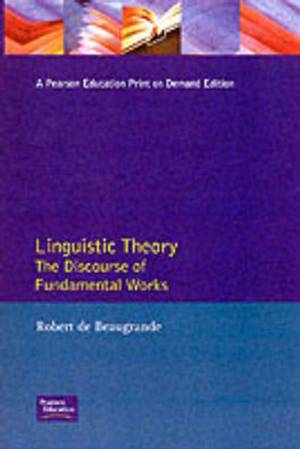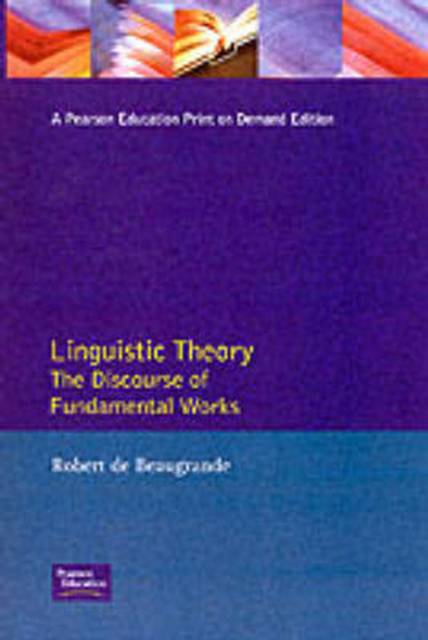
Je cadeautjes zeker op tijd in huis hebben voor de feestdagen? Kom langs in onze winkels en vind het perfecte geschenk!
- Afhalen na 1 uur in een winkel met voorraad
- Gratis thuislevering in België vanaf € 30
- Ruim aanbod met 7 miljoen producten
Je cadeautjes zeker op tijd in huis hebben voor de feestdagen? Kom langs in onze winkels en vind het perfecte geschenk!
- Afhalen na 1 uur in een winkel met voorraad
- Gratis thuislevering in België vanaf € 30
- Ruim aanbod met 7 miljoen producten
Zoeken
€ 117,95
+ 235 punten
Uitvoering
Omschrijving
In Linguistic Theory, Robert de Beaugrande analyses linguistic theories not as abstract ideas or theses, but as the process and product of theoretical discourse. He argues that the best documentation of this discourse can be found in the 'fundamental' works of major linguists from Ferdinand de Saussure to Teun van Dijk and Walter Kintsch. He therefore employs the highly unusual strategy of a close reading of these works as discourse performances and strives to uncover their main points and characteristic moves in the linguist's own words.
Through this approach, the reader is able to appreciate and understand the variety and controversy among linguistic theories as they have emerged and developed in interaction with each other. Special scrutiny is allocated to the issue of how far the active practice of the linguists followed their own theories and proposals, and why. The author concludes by assessing the prospects for linguistics to be drawn from the retrospect in the previous chapters.Specificaties
Betrokkenen
- Auteur(s):
- Uitgeverij:
Inhoud
- Aantal bladzijden:
- 412
- Taal:
- Engels
- Reeks:
Eigenschappen
- Productcode (EAN):
- 9780582037250
- Verschijningsdatum:
- 14/10/1991
- Uitvoering:
- Paperback
- Formaat:
- Trade paperback (VS)
- Afmetingen:
- 156 mm x 234 mm
- Gewicht:
- 576 g

Alleen bij Standaard Boekhandel
+ 235 punten op je klantenkaart van Standaard Boekhandel
Beoordelingen
We publiceren alleen reviews die voldoen aan de voorwaarden voor reviews. Bekijk onze voorwaarden voor reviews.









